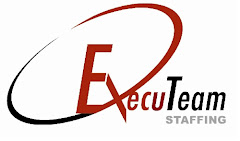
A resume is not an easy document to produce. After all, you're writing about your career here. You're writing about the fruits of your labor, the culmination of your years as a professional. You don't want to over-do your qualifications, or worse, sell yourself short. But sometimes it's difficult to be objective about your own career. Sometimes you can be your own worst biographer.
Over the course of our time in the Professional Resume Writing business, we have found there are 6 key blunders that people make time and again when they write their own resumes. These are not 6 small issues, either; on the contrary, these are 6 poisonous gaffes that can ensure your resume goes to the bottom of the proverbial pile.
Take a look at our list of 6 Sure-Fire Resume Blunders, and ask if your resume has one or more of these deadly sins:
1.Messiness- Nothing turns off a reader or employer more than a messy resume. Misspellings, poor grammar, boring or lazy page designs… these are all things that say to the reader, 'This person did not care enough to take the time to do it right.' And you might ask who would be so silly as to send in a resume without spell checking, without fact checking, or with coffee stains on it. All we can say is: you'd be surprised how many messy resumes are floating around out there. A resume is a very important document- perhaps the most important of your career. Take the time to make sure it is absolutely flawless.
2.Bogus Facts- Never lie on your resume. Never embellish. Never creatively omit. It's one thing to promote yourself aggressively and try to highlight your accomplishments in the most impressive light possible. It's another thing entirely if you cross the line into dishonestly. It's that one small lie that ALWAYS gets uncovered. Don't make your resume into a ticking time bomb; don't spend the rest of your career fearing the fake degree you never really got or the embellished sale that you never really landed.
3.Too Much Ego- Yes, you're talking about yourself, but don't make it too much about yourself. All too often, people structure their resumes in such a way that the entire document comes off like, "Here's what I want… will you give it to me?" There's a subtle difference, we know, but the resume should read more like, "Here's what I'm capable of, and here's what I can do for your company. I can get you results." That slight shift in tone is the difference between a resume that seems narcissistic and a resume that sells your potential as an employee effectively.
4.Personal Information- Remember, this is a professional document, not a personal letter. Do you think the reader cares that you have 3 kids; or that you rock climb; or that you teach yoga? Is any of that information relevant to the job you're applying for? If not, then leave it out. It's one thing to tell an employer more about yourself in an interview. Personal information can add depth and personality to your cause when you're in a one-on-one situation. But there is no place for that in your resume.
5.Question Marks- A lack of proper education and training. A job you only held for 5 days. Maybe an unexplained gap or two in your career history. Anything in your resume that might make a reader pause and begin to wonder is a bad thing. If you can't explain away these question marks reasonably, or if you can't find a way to gloss over the questionable material, then you're just leaving a giant boatred flag smack in the middle of your resume.
6.Too Much Info- The reader doesn't want to know everything you've ever done since the day you were started work. A resume should be more than a list of your career. It should be a collection of highlights; it should be a well-constructed presentation of your most relevant and most impressive career information. A good rule of thumb should be: be detailed about the things you've done lately; just hit the highlights for positions 10 or more years in the past.
-Owen Michaels
From www.net-temps.com




No comments:
Post a Comment